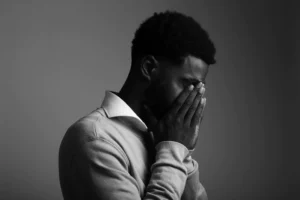I’ve always been a list person, with to-do lists as my specialty. I love checking off accomplishments and methodically taking steps toward reaching my goals. Lists can really help with that.
But after years of working off to-do lists, I have realized that I began to judge the success of my days by how many tasks I checked off my list. My productivity determined the value of my day.
I didn’t like what I was becoming. I wasn’t created for simple productivity, like a machine designed to provide the most output in the shortest possible time. When I looked at my effectiveness only based on tasks completed, I wasn’t living life – I was being ruled by it.
So I’m changing it up. Instead of managing endless to-do lists, I’m moving toward having a routine each day. This may sound like I’m moving from one control-centered behavior to another, but I promise I’m not.
Why a routine is freeing
A routine is not necessarily a schedule – I’d get stressed out having to stay on a schedule. I’m aiming for a relaxed routine.
A schedule says I eat dinner from 6:15-7:00 p.m. and then work on cleaning my apartment from 7:05-7:45 p.m. A routine says I do some cleaning after dinner.
It’s basic, really. A routine gives an order and a flow to my day without keeping me locked into a rigid schedule. There is no pressure to squeeze the activity into a specific timeframe.
This gives more flexibility if a task or activity takes longer than expected or I have a surprise interruption (both of these scenarios will happen eventually).
Why a routine works
By switching from to-do lists to routines, I’m hoping I will:
- have more time to work on a project or spend time with a friend. I won’t be comparing my number of completed tasks to yesterday’s because that number doesn’t matter nearly as much as my friendships.
- move from last-minute hurrying to preparedness. Instead of dashing to the store to get tortillas on Wednesday and then going back Friday because I ran out of eggs, I’m making time for my errands and time for planning for my errands.
- be more focused. Instead of zipping from one unrelated task to another, I can spend more time on one thing. My brain doesn’t have to keep switching gears, and I can go deeper into that one area.
I’ve only been working on this for a few weeks, and I already feel like I have more time on my hands. I don’t think I really do have more time, but my guess is that keeping similar activities in the same timeframe means less guilt over what I should be doing when I have some free time.
How to get started
The beauty of a routine is you get to decide what yours looks like, and you can always change it if it doesn’t work as smoothly as you’d hoped.
To start, pray. I think we forget about this. I know I do. But long before to-do list apps or routines were thought of, God planned the good works we’d do. Our time is really His.
List areas of your life that need your time. Bible study and prep, family, friends, housework, errands. Think about how much of your time is spent in each area.
Obviously, there will be some overlap (i.e., chatting with friends after Bible study) and some areas are really hard to schedule (like “family”), but that’s why we’re developing a routine and not a schedule.
Next, look at your week and any non-negotiables or already-scheduled activities. For example, if you have church commitments on Wednesday nights, then that part of your routine is already decided for you. Start filling in your week with those non-flexible events.
Also look at any secondary factors. Say you want to spend time with your nieces and nephews once a week. If the only nights they’re available are Wednesdays and Thursdays – and you’re already busy on Wednesdays – you might want to pencil that in on Thursday evenings.
Now it’s time to try it out! Try your routine for a week or so and then evaluate if you need to adjust anything.
It’s not about the routine, either
The whole point is to be more present. If I hold to my routine as tightly as I did to my to-do list, measuring the success of my day by how well I stuck to my routine, then I’ve only switched taskmasters.
My goal is to find what works for me so I can live out a balance between accomplishing what needs to get done and being open and ready for the people around me. The world – and God’s plan for me in it – is so much bigger than my little lists.
We aren’t machines trying to stick to a productivity plan. We are people, created in God’s image to do good works and to live in the grace and joy He’s given us.
Copyright 2019 Lauren Dunn. All rights reserved.












